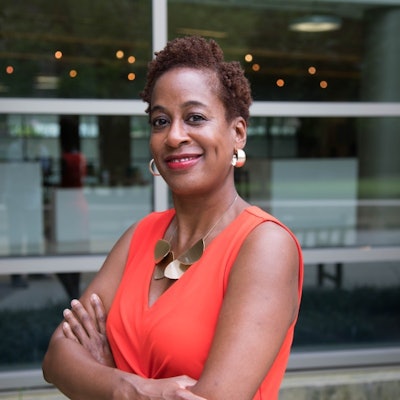The exclusion and omission of Black history threatens to harm not just the Black community at large but also students and the very future of the nation, experts said during a Nov. 14 panel. Janel George
Janel George
The panel – part of the Congressional Black Caucus Foundation’s larger National Racial Equity Initiative for Social Justice (NREI) Summit – brought together experts to discuss contemporary attacks against the inclusion of Black history in societal awareness and education.
The discussion was moderated by Dr. Marcia Vandiver, associate professor of elementary education at Towson University.
“Today, many state leaders have increasingly advocated for the banning of African American studies and have proposed curriculum changes that downplay the significance of slavery in the U.S.,” the NREI website stated. “Across the nation, 23 states have introduced legislation to ban the discussion of ‘divisive’ concepts, including issues related to race and gender. In the face of curriculum and book bans and the devaluing of Black history, it is imperative to amplify and uphold African American history.”
This denial of Black history and contributions is not new, said panelist Janel George, a law professor and founding director of the Racial Equity in Education Law and Policy Clinic at Georgetown University. Such erasure has occurred repeatedly throughout American history and provides justification for mistreatment and racial stratification, she said.
Attempts are also being made by conservative activists, such as Christopher Rufo, to villainize and weaponize concepts such as critical race theory (CRT) and wokeness, make them “toxic,” and conflate them with Blackness, she said.
"These people who are pushing this agenda, they don't care about what CRT is, what it actually means, what 'woke' is, what 'woke' means,” George said. “They just want people to equate it with Blackness."
African Americans and those trying to embrace diversity in education are also being pushed out of local governing groups that have the power to influence what is taught in schools, such as parent-teacher organizations and school boards, she said.
"There's always that stereotype of Black parents [not being] involved. No, Black parents are very involved. No one in this country has sacrificed more for education, putting their children on the line, than Black parents,” she said. “But they've been pushed out of a lot of leadership roles."
This omission of Blacks from the narrative of the nation is partly motivated by society not wanting to confront truths about race and how legislation has deliberately kept disadvantages against African Americans in place, said panelist Dr. Robert J. Patterson, the inaugural chair of the Department of African American Studies at Georgetown University.
This collective effort to exclude Black people from American history and educational content threatens to distance students from their learning and foster internalized devaluation.
"When you're in school and you don't see yourself reflected in the curriculum, you don't see any contributions of anyone who looks like you, not only do you disengage from the content, but you start to think about yourself. 'What am I learning? What am I seeing?' There's no pride in that,” George said. “So, it's an internalization of that sense of erasure and devaluation, particularly because we've lost so many Black educators. ... You're being taught this curriculum, in which you're excluded, by people who don't look like you."
America is a nation that will always be a work-in-progress, said panelist Augustus Mays, vice president of partnerships and engagement at The Education Trust. Accurate education can help create citizens dedicated to progress and the country’s future.
But by depriving students of all races the chance to learn about and grapple with the challenges America has persisted through, it hinders their development into critically thinking, inclusive, and engaged Americans, Mays said.
Distorting American history to exclude the contributions of and oppression against African Americans perpetuates violence, mistreatment, and anti-Blackness, the panelists said.
"There is this sense that Black people are at these disadvantages as a consequence of their behavior, their action, their inaction, whereas if we actually look at what the history actually shows – which is the systemic denial and disenfranchisement of Black people – it really is an indictment on some of the values that America holds true: meritocracy, individuality, the equality of access. That's actually just not there,” Patterson said.
To push back against this erasure, the panelists suggested working towards increasing access to local positions of power, recording Black history digitally, and making an intentional effort to pass down Black stories and reconnect with elders in the community.
Teachers and advocates can also attend “know-your-rights” trainings to better understand what content pertaining to Black history can still be taught and which conversations can still be had, according to Mays.
The summit's other panels discussed obstacles faced by Black voters and corporate pledges to diversity initiatives.


















